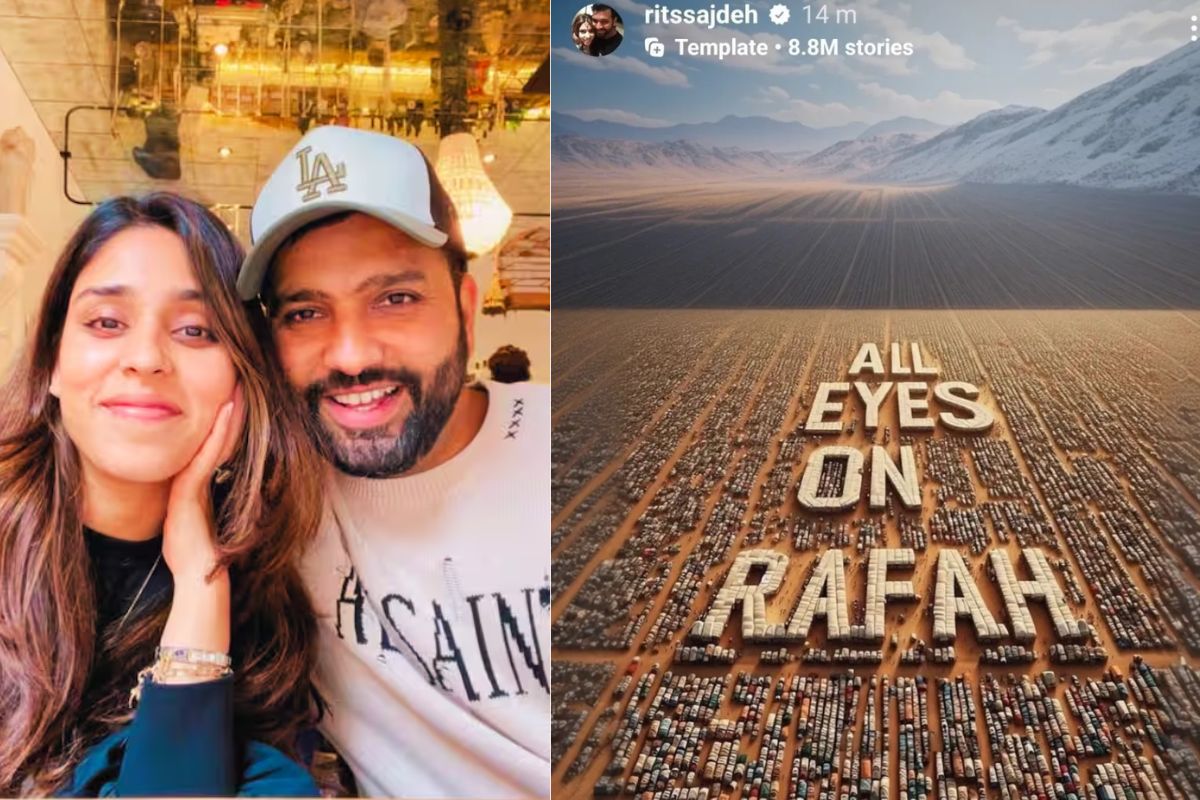With all eyes on Rafah, the world watches as a humanitarian crisis unfolds amid political tensions and diplomatic negotiations. This region, nestled on the border between Egypt and the Gaza Strip, has become a focal point for international attention due to its geopolitical significance and the plight of its people.
Rafah, a city with a rich history, has witnessed numerous conflicts and power struggles. Its strategic location has made it a crossroads for trade and a gateway to the wider Middle East. However, in recent years, the region has been plagued by violence, displacement, and human rights violations, drawing the concern of the international community.
Overview of ‘All Eyes on Rafah’
The phrase ‘All Eyes on Rafah’ encapsulates the heightened international attention on the Rafah region, a strategic border town between Egypt and the Gaza Strip. Rafah’s geopolitical significance stems from its historical role as a gateway to the Sinai Peninsula and its proximity to major population centers in both Egypt and the Palestinian Territories.
The current situation in Rafah is marked by ongoing tensions, political instability, and a humanitarian crisis. These factors have drawn the attention of the international community, as the region faces complex challenges that have implications for regional and international peace and security.
Political and Diplomatic Implications
Political Dynamics
Rafah is a focal point of political dynamics involving multiple stakeholders, including Egypt, the Palestinian Authority, Hamas, and Israel. Each actor has its own interests and objectives, often leading to conflicting perspectives and tensions.
Diplomatic Efforts
Various diplomatic efforts are underway to address the situation in Rafah. Egypt has played a key role in mediating between different parties and facilitating negotiations. International organizations, such as the United Nations and the European Union, are also engaged in diplomatic efforts to find peaceful solutions.
Potential Consequences
The ongoing tensions in Rafah have the potential to escalate into wider regional conflicts. They could also undermine stability in Egypt and the Palestinian Territories, and hinder progress towards a peaceful resolution of the Israeli-Palestinian conflict.
Humanitarian Crisis and Human Rights
Humanitarian Situation
The conflict in Rafah has led to a severe humanitarian crisis. Thousands of people have been displaced from their homes, and many lack access to basic necessities such as food, water, and healthcare. The closure of the Rafah border has further exacerbated the situation.
Human Rights Violations
Allegations of human rights violations have been made in Rafah, including arbitrary arrests, torture, and extrajudicial killings. These violations have been condemned by human rights organizations and the international community.
International Assistance
International aid organizations are providing assistance to the affected population in Rafah. However, the ongoing conflict and restrictions on access continue to hinder the delivery of humanitarian aid.
Media Coverage and Public Perception: All Eyes On Rafah
Role of the Media, All eyes on rafah
The media plays a crucial role in shaping public perception of the situation in Rafah. News reports and social media posts can influence how the public understands the conflict and its impact on civilians.
Challenges and Biases
Reporting on conflict zones is often challenging, and biases can arise from various factors such as access to information, political affiliations, and cultural differences. It is important to be aware of these biases and strive for accurate and balanced reporting.
Importance of Responsible Journalism
Accurate and responsible journalism is essential for fostering understanding and empathy for the people affected by the conflict in Rafah. It can also contribute to raising awareness about the humanitarian crisis and advocating for peaceful solutions.
Long-Term Prospects and Solutions
Potential Solutions
Addressing the underlying causes of conflict in Rafah requires a multifaceted approach. Potential solutions include peacebuilding initiatives, diplomatic negotiations, and economic development programs.
Role of Diplomacy
Continued diplomatic efforts are crucial for finding peaceful solutions to the political and security challenges in Rafah. Negotiations and mediation can help build trust and create a conducive environment for dialogue and compromise.
Economic Development
Economic development can contribute to stability and reduce tensions in Rafah. Creating job opportunities, improving infrastructure, and promoting trade can provide alternative livelihoods and reduce the appeal of violence.
Challenges and Obstacles
Achieving long-term stability and peace in Rafah faces significant challenges. These include ongoing political disputes, mistrust between different actors, and the impact of external factors such as regional conflicts.
Closure
The situation in Rafah remains complex and fluid, with no easy solutions in sight. The humanitarian crisis demands urgent attention, while the political and diplomatic efforts to resolve the underlying tensions face significant challenges. As the world continues to watch, the fate of Rafah and its people hangs in the balance, a stark reminder of the fragility of peace and the need for concerted action to address the root causes of conflict.


